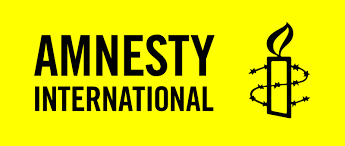AUTHOR: Caterina Loreto
When Ireland introduced the Direct Provision system in 2000, it was pitched as a short-term solution, an emergency measure to house people seeking asylum. Fast-forward more than two decades, and this “temporary” system is still in place, still heavily criticised, and still failing many of the people it was meant to protect.
What began as a stopgap has become a structural issue with profound human rights consequences. And now, 24 years later, the conversation about how to move beyond Direct Provision is more urgent than ever.
Direct Provision and Human Rights: A System Built to Fail?
Direct Provision was designed to provide asylum seekers in Ireland with the basics: accommodation, food, and a small weekly allowance while their applications were being processed. But anyone familiar with asylum procedures knows they’re rarely quick. In Ireland, people often wait years for a decision.
The problem? Direct Provision was never meant to support people for that long. As a result, the system has proven deeply inadequate, even harmful.
Irish-Nigerian author Melatu Uche Okorie captures the experience powerfully in her book This Hostel Life, describing long queues for food, overcrowded accommodation, and a constant sense of uncertainty. Supplies are often insufficient, privacy is scarce, and the emotional toll is staggering. For many, these centres are not places of safety, they’re places of stagnation and struggle.
And it’s not just about discomfort. There have been consistent reports of racism, gender-based violence, and institutional neglect, especially affecting the most vulnerable: single mothers, children, LGBTQIA+ asylum seekers, and people with disabilities.
This isn’t just bad design. It’s structural injustice.
Amnesty International’s Fight for Change
For years, Amnesty International and other human rights organisations have been sounding the alarm about Direct Provision. But it wasn’t until 2019, on the system’s 20th anniversary, that the Irish government began to seriously respond.
In the wake of the COVID-19 pandemic, the urgency became even clearer: Direct Provision wasn’t just failing, it was putting lives at risk.
In 2020, an expert group recommended ending the system by 2023. Amnesty cautiously welcomed the report, but stressed that Ireland needed more than promises, it needed detailed, enforceable plans.
“We welcome the proposed ending of Direct Provision in 2023, and the recommendations on how to make that happen. But the system has carried through 20 years of successive governments. At this stage, we will need detailed implementation plans with ironclad commitments and timelines that will outlast any shifts in the political landscape.” Amnesty International, October 2020.
In 2021, the Irish government published a White Paper laying out a plan to end Direct Provision by 2024. Amnesty continued to campaign, this time partnering with Movement of Asylum Seekers in Ireland (MASI) and hosted talks and performances from people, including children, living in Direct Provision centres, to shed light on their experiences.
But the cracks soon showed.
By 2023, the government admitted the original goals were unlikely to be met due to a national housing crisis and rising numbers of asylum applications. In 2024, a new strategy was introduced, promising to deliver 14,000 state-owned beds by 2028 and reduce reliance on private accommodation providers.
So Where Do We Go From Here?
Ireland is still at a crossroads. The revised White Paper may be more realistic, but realism doesn’t replace urgency or justice. The people caught in Direct Provision can’t wait until 2028. Every extra day spent in this system adds to years of lost time, lost dignity, and lost potential.
What was once introduced as a temporary solution has, over nearly a quarter of a century, become a symbol of policy inertia and systemic neglect. It’s time to recognise that a “temporary solution” lasting 25 years is no solution at all.
Sources:
https://www.amnesty.ie/end-direct-provision/
https://www.amnesty.ie/ireland-direct-provision-white-paper/
https://www.amnesty.ie/wp-content/uploads/2023/07/01549-AI-Ireland-AR21-Web.pdf
https://www.amnesty.ie/expert-groups-report-on-direct-provision-is-welcome-but-just-the-first-step
https://www.amnesty.ie/wp-content/uploads/2020/01/DP-Action-Guide-2019.pdf
https://assets.gov.ie/124757/ef0c3059-b117-4bfa-a2df-8213bb6a63db.pdf

